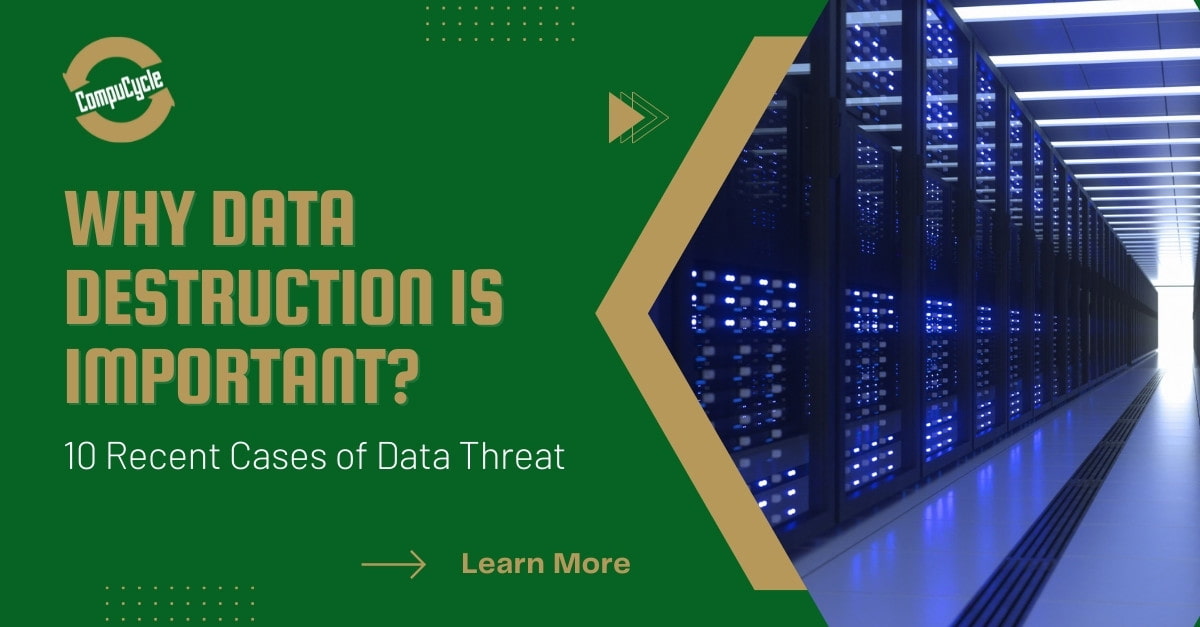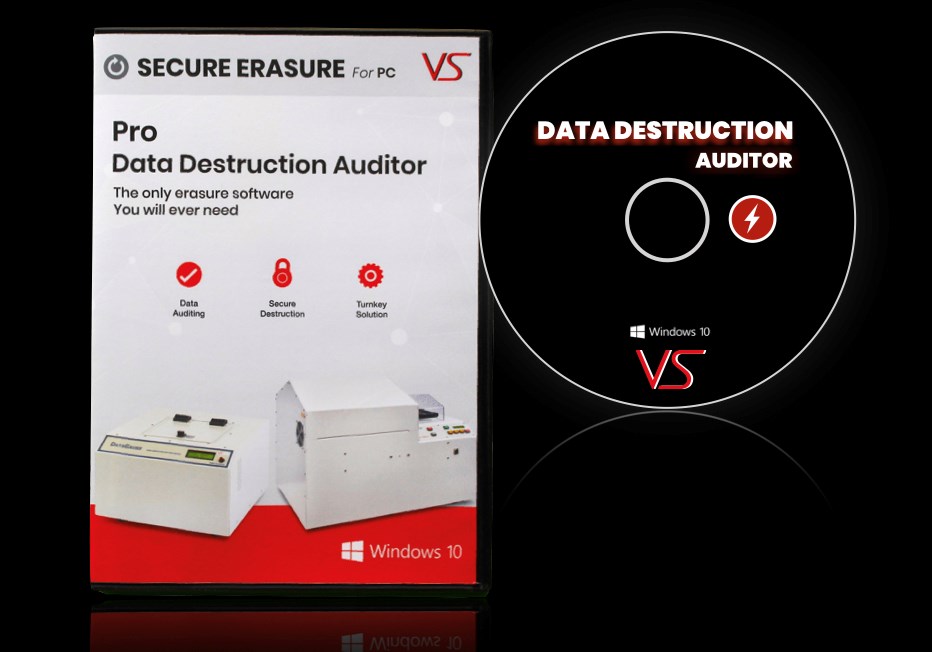Maximizing Cyber Security through Advanced Data Destruction Methods
Maximizing Cyber Security through Advanced Data Destruction Methods
Blog Article
The Essential Nature of Data Devastation in Upholding Computer System Safety Services and Protecting Against Unauthorized Gain Access To
In an age where data breaches and identification burglary are significantly common, the value of effective data devastation can not be overstated. Numerous techniques, from data wiping to physical destruction, serve as crucial safeguards against unapproved gain access to.
Value of Information Devastation
In an increasingly electronic globe, the significance of data devastation can not be overstated. As organizations amass large amounts of sensitive info, the possible consequences of falling short to correctly get rid of and manage of that data come to be significantly extreme. Data breaches, identification theft, and company reconnaissance present considerable hazards, emphasizing the necessity of reliable information devastation methods.

In addition, as technology progresses, so also do the approaches by which malicious actors look for to make use of delicate information. Organizations needs to continue to be watchful and positive in their information damage methods to protect against these evolving hazards. By prioritizing data devastation, companies not only secure their possessions but additionally foster trust fund among stakeholders and customers, showing a commitment to liable data management and security techniques.
Approaches of Effective Data Damage
To make certain the full and irreversible destruction of delicate information, companies can utilize a variety of reliable methods tailored to their particular demands. Among the most typical methods is data cleaning, which involves making use of specialized software program to overwrite existing information several times, making healing practically impossible. This is particularly beneficial for hard drives and solid-state drives, where conventional removal techniques are inadequate.
One more effective strategy is degaussing, which uses strong electromagnetic fields to interfere with the magnetic domain names on storage media, making the information irretrievable. This approach is specifically suited for magnetic storage devices, such as tape drives and difficult disks.
Physical damage is additionally a feasible alternative, entailing the shredding, squashing, or incineration of storage gadgets. This method assurances that data can not be recouped, making it optimal for organizations handling very sensitive info.

Conformity With Information Defense Laws
Organizations must not only concentrate on effective data devastation techniques however likewise make certain conformity with data protection regulations that regulate how sensitive details is managed and thrown away. Sticking to these regulations is necessary for preserving and guarding individual information customer depend on. Laws such as the General Information Protection Law (GDPR) in the European Union and the Health Insurance Portability and Liability Act (HIPAA) in the United States enforce stringent standards on data my website administration, which consist of demands for the protected disposal of sensitive details.
To achieve compliance, companies should implement thorough information destruction policies that align with these legal frameworks. This includes recognizing information that needs damage, establishing methods for safe methodsâEUR" such as shredding physical media or making use of software that satisfies industry criteria for information wipingâEUR" and maintaining thorough records of destruction activities. Regular audits should be carried out to make certain adherence to these policies and to identify any type of possible locations for enhancement.
Failing to adhere to information protection policies can bring about significant legal implications, including substantial penalties and damages to an organization's online reputation. Incorporating compliance right into data destruction techniques is not only a lawful responsibility however additionally a critical element of a durable details security approach.
Effects of Poor Information Handling
Poor information handling can result in serious repercussions that extend past prompt operational troubles. Organizations might face considerable monetary losses because of information breaches, which commonly cause expensive removal efforts, legal costs, and regulatory fines. These financial effects can prevent and stress resources growth, inevitably influencing a company's lower line.
In addition, inadequate data handling can severely damage an organization's credibility. Partners, clients, and stakeholders may lose count on an entity that falls short to secure delicate details, causing lowered consumer loyalty and prospective loss of company opportunities. This erosion of trust can take years to rebuild, if it can be restored whatsoever.
Furthermore, organizations might face legal ramifications emerging from non-compliance with information protection regulations. Such violations may lead to charges and examinations, worsening the economic concern and additional tainting the company's photo.
In the realm of cybersecurity, insufficient data management methods can create susceptabilities that make systems more click reference at risk to unapproved accessibility and cyberattacks. Inevitably, these effects underscore the critical significance of implementing durable information managing treatments to secure sensitive info and preserve organizational stability.
Best Practices for Secure Data Disposal


To start with, data should be identified according to its level of sensitivity. Sensitive info needs that site extra strenuous disposal techniques, such as shredding physical files and making use of innovative software application for digital data cleaning. Utilizing qualified information damage services makes certain conformity with industry laws and standards.
Second of all, organizations ought to carry out a data disposal plan that mandates routine audits. This plan must lay out the treatments for data retention and devastation, making sure that outdated information is taken care of immediately and securely. Educating employees on these protocols is important to fostering a society of protection recognition.
Finally, keeping in-depth records of disposed information improves liability and supplies a clear audit trail. This documents should include the sort of information ruined, the technique utilized, and the date of disposal.
Conclusion
Embracing robust methods such as data cleaning, degaussing, and physical devastation, together with conformity with guidelines like GDPR and HIPAA, is essential for safeguarding delicate information. Ignoring correct information disposal techniques can lead to extreme consequences, consisting of information violations and lawful consequences.
In an age where information violations and identification theft are increasingly prevalent, the value of effective data damage can not be overstated. data destruction. Information breaches, identity burglary, and corporate espionage position considerable hazards, highlighting the necessity of efficient data damage techniques
Conformity with regulations such as GDPR and HIPAA requireds that organizations execute stringent data protection measures, including the secure devastation of information at the end of its lifecycle.
By prioritizing information destruction, business not just protect their properties however also foster trust fund among stakeholders and clients, demonstrating a dedication to responsible information administration and protection practices.
Organizations need to not just concentrate on effective data damage approaches but also ensure conformity with data defense regulations that control exactly how delicate info is managed and disposed of.
Report this page